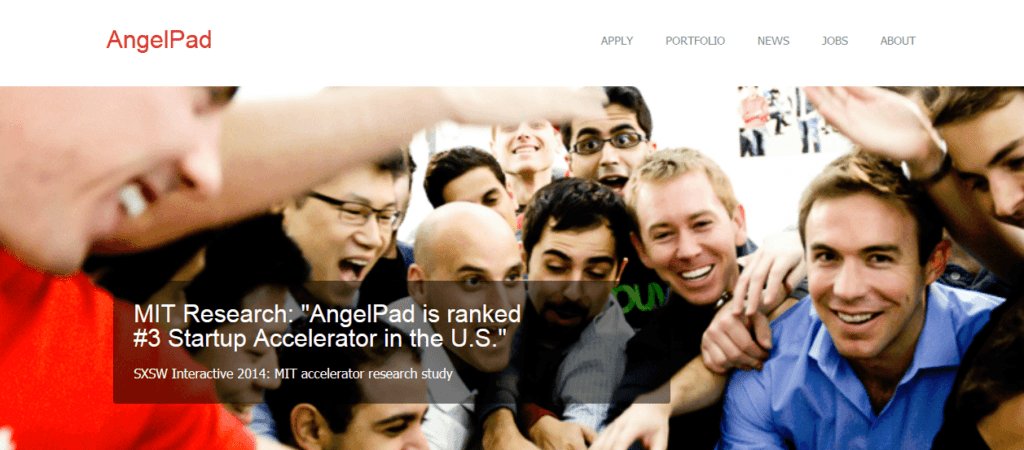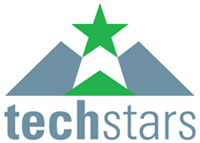Whether all you have is an idea or you’re actively into the early stages of your company’s development, you’ve probably anticipated the need for startup or venture capital.
Money makes things happen.
The good news is the days of meeting with investors one after another–hoping one will bite–are over.
You shouldn’t do away with good-old-fashioned-face-time entirely, but there are now ways to make sure that your pitches will be heard by informed and interested investors, in all types of markets.
In some cases, the high pressure face-to-face meeting isn’t necessary, and/or takes place after investors have had time to find out about who you are and what you do.
From small business loans to pitching friends, there are so many places to get funding for startups.
All these alternatives can make your search more difficult. You can literally spend hours looking through search results without hitting the truly great opportunities.
We’ve done the due diligence to put together this list of sites, contests, and programs that can get your early-stage startup the attention and capital it needs to get out of the garage, make money and leave your fingerprints on the world.
AngelPad

A team of former Google employees started the AngelPad mentor-ship program to help web technology entrepreneurs improve their products and learn to pull in seed funding. Selected companies receive a 10-week mentorship program in San Francisco that ends with a “demo day” – a chance to introduce your idea to several hundred investors.
The mentorship program focuses on topics meaningful to a company launch, such as finding customers, raising funds, honing the product and finding the right market. AngelPad also handles practical needs such as immigration visas, incorporation, and setting up bookkeeping. Because only about 15 companies attend each biannual conference, guidance is personal and relevant.
Fundbox

The word “startup” can cover a lot of territory. For startup founders who have an established company and some active customers, but who don’t yet have many years in business, it can be tough to get funds from a traditional source like a major bank. Fintech firm Fundbox tries to bridge the gap by connecting businesses with the funds they need to grow—as quickly as possible.
Fundbox offers business lines of credit up to $100,000. If you own a startup or any kind of small or medium sized business based in the U.S., and you have been in business at least a few months, Fundbox might be a good choice for you. Applying online is simple and, if approved, you can get funds as soon as the next business day. Unlike with some other funding options, there’s no restriction on how you use the money, giving you the important financial flexibility you need to grow your startup.
First Round Capital

The most active seed-stage venture firm in the U.S., First Round Capital‘s eight investment professionals and their partners have helped more than 200 companies get off the ground. They focus on the first 18 months of a business’ development, when they feel they can be most beneficial. Once a year, the founders and CEOs of First Round Capital’s portfolio companies attend a day-long summit with guest speakers, shared resources, and introductions to executives from online retailers.
Their VC-sponsored Exchange Fund asks each portfolio business to contribute a portion of the stock they own in their company, and all the companies in the fund share its profits. First Round Capital itself does not take any profits from the fund – its intent is to foster diversification for the startup companies.
Portfolio companies are provided assistance with light research or consulting with First Round Venture Concierge. This service offers responses to simple questions about business or marketing, often in under 48 hours. Other questions can be addressed to other portfolio companies through First Round’s mailing list, another powerful networking tool.
First Round Capital’s main thrust is to raise funds for the next stage of growth in their portfolio businesses. According to their website, after $20 million in initial investments, First Round saw $850 million in later-stage financing from other firms – a return of about 36 to 1.
Jumpstart Foundry

Concentrating on healthcare IT, data systems and social engagement startups in the southeastern US, Jumpstart Foundry takes a three-pronged approach to building fledgling businesses. “The Foundry,” Jumpstart’s 14-week mentoring incubation program, aims to prepare a selection of about six companies for a successful launch each year. A series of training classes and seminars, called Jumpstart Fundamentals, focuses on the future by expanding growth in middle Tennessee’s tech and investment sectors. Finally, through investments by Solidus-TNinvestco, the JSF Angels, and partnerships with the Nashville Entrepreneur Center, Jumpstart provides selected companies with $15,000 in startup funding.
Jumpstart says $15,000 is enough to continue business for three months and prepare a solid prototype. However, at the end of The Foundry’s program, attendees present their idea to investors. Jumpstart helps coach their companies to be successful in these presentations and assists with followup as well. In some cases, Jumpstart itself may choose to extend additional funding. Participants should plan to be in Tennessee during the 14-week program, but do not need to be residents of the area. Jumpstart offers assistance with helping find housing in the area, but it is not provided.
Jumpstart does not fund medical device or biotechnology companies, restaurants, consultancies, or other local service-oriented businesses. They actively seek startups with an excellent team, so while they won’t disqualify an applicant who’s a sole founder, they recommend rounding out the team to add business, technical, and other valuable skill sets.
Launch

Launch holds an annual two-day conference with two separate competitions. The Launch 1.0 competition is geared toward brand-new startups which have not yet had press or public demonstrations and whose services are in closed alpha or beta. Launch 2.0 is designed for existing businesses which are about to introduce new products or new versions of current products.
Each company gets 5 minutes to present their product onstage, as well as 5-10 minutes for Q-and-A with the 1,000-member audience of journalists and angel investors. Judges, who are also investors, and a jury then deliberate and select award winners. A February article in VentureBeat said judges of the 2011 competition committed an estimated $500,000 in funding by the time the conference was over.
If a 1.0 company’s product has received any press coverage whatsoever, Launch’s FAQ states the company will probably be disqualified from competition. Exceptions to this rule are coverage that does not show or describe the product and coverage on friends’ blogs. Launch recommends in this case asking the friend to remove the entry.
In addition, if your business has a functional website that describes the product, you are not eligible for Launch 1.0. If no one has seen the site yet, Launch suggests putting the site behind a “coming soon” firewall.
Launch 1.0 competitors may enter with incomplete sections of their websites, as long as screenshots or wireframes can be shown. Launch’s goal is for 1.0 companies to open their sites at the conference. They ask applicants to specify which parts of their websites are complete and which will be complete by the conference.
Techstars

Companies selected by TechStars receive up to $18,000 in startup funding, a three-month mentorship program in Boston, Boulder, New York, or Seattle, and a chance to present their products to investors at the end of the program. TechStars selects about ten startups per city from hundreds of applicants.
TechStars is aimed toward technology startups, particularly web-based or software companies. It’s just for newcomers, though. In the past, they have taken on companies that have completely developed products and even over 1 million in financing and revenue. On the other hand, they say it’s never too early to apply.
TechStars’ focal point is the value of mentorship. The three-month program is effective, they say, because of the intensive mentoring and networking connections with potential clients and associates. These connections come not only from the mentoring team and venture capitalists, but from the other entrepreneur attendees.
Selected companies receive $6,000 per founder, with a maximum of three founders. TechStars provides free server hosting, office space, legal services, and the three-month program. In return, TechStars receives a 6 percent equity in founders stock.
In addition to considering what’s listed here, try doing an online search for seed funding directed toward your particular field, first going as narrow as possible. Because the web has fostered such a diverse marketplace, you might be surprised as what you can find. Most agencies lean toward a certain type of business, and there are plenty of them out there. Find investors and programs that have committed to startups in your field in the past. Contacting these programs will be most beneficial, because they are already interested in the type of product or service you’re developing.
NBIA

The National Business Incubation Association, or NBIA, is an invaluable resource for startup companies looking for funding, too. They offer a searchable index of business incubators and plenty of supplementary articles and advice for entrepreneurs in their Resource Library.
Honorable mentions:
Since people have been asking for it, we will be updating this list with more options for you to choose from.
Seek Capital

Any startup business owner that’s tried to get funding knows their options are limited. Startups are often rejected for bank loans and typically don’t qualify for SBA loans without multiple years of business financials.
Seek Capital aims to change all that.
Seek Capital, a leader in the startup business loans space, helps brand new businesses find funding options — even when it feels like there aren’t any.
Seek Capital can help startups get up to $500,000 in funding, depending on what they qualify for.
Additionally, you can apply in just two minutes, get preapproved in less than 20 minutes, and can apply for funding with no tax returns or collateral. With a 92% approval rate, the majority of Seek Capital clients are approved for funding even after having been rejected by other lenders and banks.
Additionally, Seek Capital can help with other early-stage business problems — including entity creation, viability assessments and more.

Liam Martin is a serial entrepreneur, co-founder of Time Doctor, Staff.com, and the Running Remote Conference, and author of the Wall Street Journal bestseller, “Running Remote.” He advocates for remote work and helps businesses optimize their remote teams.


